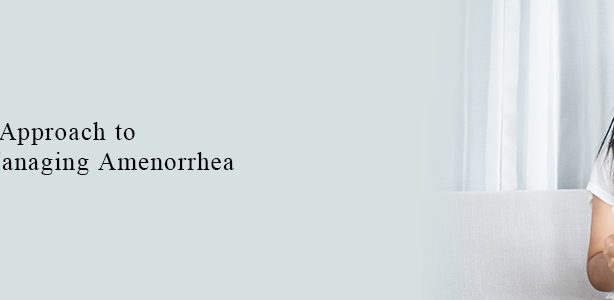Ayurveda Singapore experts say that Vipadika Kushta arises due to the vitiation of one or more doshas, particularly Vata, Pitta, and Kapha, leading to imbalances in the skin’s health and function
According to Ayurveda Singapore, the skin is considered a mirror reflecting the body’s internal state. Skin disorders, such as Vipadika Kushta, are manifestations of underlying imbalances in the body’s doshas (bio energies), dhatus (tissues), and malas (waste products). Understanding Vipadika Kushta through the lens of Ayurvedic Singapore provides profound insights into its causes, symptoms, and holistic management strategies.
Understanding Vipadika Kushta
Vipadika Kushta is a term used in Ayurveda to describe various skin disorders characterized by symptoms like itching, inflammation, discoloration, and lesions. Ayurveda Singapore experts say that Vipadika Kushta arises due to the vitiation of one or more doshas, particularly Vata, Pitta,and Kapha, leading to imbalances in the skin’s health and function.
Ayurvedic Perspective on Skin Health
In Ayurveda, the skin is the outermost manifestation of the body’s internal health and vitality. It is governed by the sub dosha of Vata, known as Vyana Vata, which regulates circulation, moisture balance, and sensation in the skin. When the doshas become imbalanced due to dietary indiscretions, lifestyle factors, environmental toxins, or emotional stress, it can manifest as skin disorders like Vipadika Kushta, say Ayurvedic Singapore experts.
Causes of Vipadika Kushta According to Ayurveda
Ayurveda Singapore attributes the development of Vipadika Kushta to a combination of internal and external factors. Some common causes include:
Dietary Factors: Consumption of incompatible foods (Viruddha Ahara), excessive intake of spicy, oily, or processed foods, and irregular eating habits can disturb the digestive fire (Agni) and contribute to the accumulation of toxins (Ama), leading to skin disorders.
Lifestyle Habits: A sedentary lifestyle, lack of exercise, inadequate sleep, and exposure to environmental pollutants can disrupt the body’s natural balance, aggravating Vata, Pitta, or Kapha doshas and manifesting as skin ailments.
Emotional Stress: Emotional disturbances like anxiety, fear, and anger can affect the neuroendocrine system, leading to hormonal imbalances and skin reactions. Ayurveda emphasizes the interconnectedness of mind and body in maintaining skin health.
Seasonal Influences: Changes in weather and seasonal transitions can influence the doshic balance within the body, predisposing individuals to skin disorders. For example, Vata aggravation during the dry, cold seasons can exacerbate symptoms of itching and dryness, while Pitta aggravation in hot weather may lead to inflammation and rashes.
Symptoms of Vipadika Kushta
Vipadika Kushta encompasses various skin conditions, each presenting unique symptoms. As per Ayurveda Singapore experts, some common signs of Vipadika Kushta include:
- Itching (Kandu)
- Redness and inflammation (Pitta)
- Dryness and scaling (Vata)
- Discoloration or pigmentation abnormalities
- Formation of papules, vesicles, or pustules
- Sensitivity to touch or temperature changes
- Discharge or oozing from lesions
Ayurvedic Management of Vipadika Kushta
Ayurveda Singapore offers a holistic approach to managing Vipadika Kushta by addressing the root causes and restoring doshic balance. Some key strategies include:
Dietary Recommendations: A skin-friendly diet that pacifies aggravated doshas and promotes digestion is essential for managing Vipadika Kushta. Emphasize cooling, hydrating, and easy-to-digest foods, such as fresh fruits, vegetables, whole grains, and herbal teas. Avoiding spicy, oily, and processed foods can help reduce inflammation and toxin accumulation.
Lifestyle Modifications: Adopting lifestyle habits that support skin health, such as regular exercise, adequate hydration, stress management techniques like yoga and meditation, and proper hygiene, can complement dietary interventions and promote overall well-being.
Ayurvedic Herbs and Formulations: Ayurvedic Singapore uses various herbs and formulations to alleviate symptoms of Vipadika Kushta and promote skin healing. Some commonly recommended herbs include Neem (Azadirachta indica), Turmeric (Curcuma longa), Aloe Vera, and Manjistha (Rubia cordifolia). External applications like herbal pastes, oils, and medicated baths can provide soothing relief to inflamed skin.
Detoxification Therapies: Panchakarma, the Ayurvedic detoxification and rejuvenation therapy, may be recommended for individuals with chronic or severe cases of Vipadika Kushta. Panchakarma, like Vamana (therapeutic vomiting), Virechana (purgation), and Basti (medicated enema), help eliminate toxins from the body, purify the blood, and restore doshic balance, thereby promoting skin healing from within.
Individualized Care: Since Ayurveda Singapore recognizes the uniqueness of each individual’s constitution (Prakriti) and imbalances, personalized treatment plans tailored to one’s specific doshic profile and presenting symptoms are essential for optimal results. Consulting with a qualified Ayurvedic practitioner can provide expert guidance and support in managing Vipadika Kushta effectively.
Vipadika Kushta, as understood in Ayurvedic Singapore, reflects the intricate interplay of doshas,dhatus, and malas within the body, manifesting as various skin disorders. By addressing the root causes of Vipadika Kushta through Ayurveda Singapore’s principles of diet, lifestyle, herbal therapies, and detoxification, individuals can restore doshic balance, promote skin health, and experience long-lasting relief from skin ailments. Embracing this ancient wisdom offers profound insights into nurturing our skin and fostering holistic well-being naturally.



